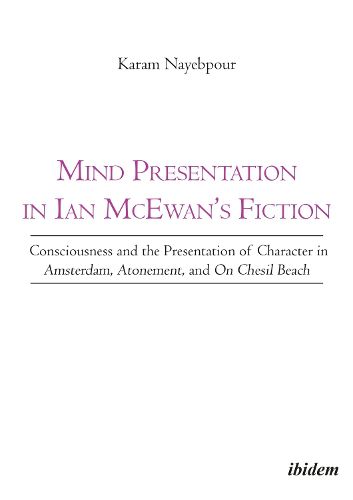Readings Newsletter
Become a Readings Member to make your shopping experience even easier.
Sign in or sign up for free!
You’re not far away from qualifying for FREE standard shipping within Australia
You’ve qualified for FREE standard shipping within Australia
The cart is loading…






This title is printed to order. This book may have been self-published. If so, we cannot guarantee the quality of the content. In the main most books will have gone through the editing process however some may not. We therefore suggest that you be aware of this before ordering this book. If in doubt check either the author or publisher’s details as we are unable to accept any returns unless they are faulty. Please contact us if you have any questions.
This book explores the central fictional minds in three of Ian McEwan’s most popular narratives. Mind presentation constitutes the main part of characterisation in the second phase of McEwan’s writing, where his plot structure depends to a large degree on the presentation of the characters mental workings. In Amsterdam (1998), Atonement (2003), and On Chesil Beach (2007), the construction process of the fictional minds, the degree their functioning is impacted by their experiences, and the way their mental aspect controls their behaviour and relationships are critical to the stories. Relying on insights and methods from Cognitive Narratology, this study follows two purposes: It firstly analyses the function of fictional minds and their operational modes in these narratives. Secondly, it explores the impact of the characters’ experiences on both their mental functioning and their behaviour, especially with view of their relationships. Nayebpour reveals that the plot structure of these narratives highly depends on the lack of a sound balance between the two aspects of the represented minds (intermental/joint thought and intramental/individual thought) as well as on the dominance of the intramental one. The tragic atmosphere in these narratives, Nayebpour argues, is the result of this imbalance.
$9.00 standard shipping within Australia
FREE standard shipping within Australia for orders over $100.00
Express & International shipping calculated at checkout
This title is printed to order. This book may have been self-published. If so, we cannot guarantee the quality of the content. In the main most books will have gone through the editing process however some may not. We therefore suggest that you be aware of this before ordering this book. If in doubt check either the author or publisher’s details as we are unable to accept any returns unless they are faulty. Please contact us if you have any questions.
This book explores the central fictional minds in three of Ian McEwan’s most popular narratives. Mind presentation constitutes the main part of characterisation in the second phase of McEwan’s writing, where his plot structure depends to a large degree on the presentation of the characters mental workings. In Amsterdam (1998), Atonement (2003), and On Chesil Beach (2007), the construction process of the fictional minds, the degree their functioning is impacted by their experiences, and the way their mental aspect controls their behaviour and relationships are critical to the stories. Relying on insights and methods from Cognitive Narratology, this study follows two purposes: It firstly analyses the function of fictional minds and their operational modes in these narratives. Secondly, it explores the impact of the characters’ experiences on both their mental functioning and their behaviour, especially with view of their relationships. Nayebpour reveals that the plot structure of these narratives highly depends on the lack of a sound balance between the two aspects of the represented minds (intermental/joint thought and intramental/individual thought) as well as on the dominance of the intramental one. The tragic atmosphere in these narratives, Nayebpour argues, is the result of this imbalance.